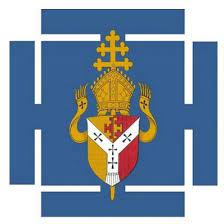History Curriculum
Intent, Implementation, and Impact
History Curriculum Statement
Our curriculum is joined and sequenced properly to ensure that our children avoid gaps in their learning. A globally relevant curriculum helps to facilitate children with a strong world view.
Intent
At St. John’s RC Primary School, our History curriculum provides high quality resources and a consistent approach across the school. In doing so, we develop the following characteristics of historians:
- An excellent knowledge and understanding of people, events and contexts from a range of historical periods, including significant events in Britain
- Learning about the concept of chronology, which enables children to understand a sense of time as well as concepts such as cause, change and effect
- Having the ability to support, evaluate and challenge their own and others’ views using historical evidence from arrange of sources
- Having the ability to think, reflect, debate, discuss and evaluate the past by formulating and refining questions and lines of enquiry
Implementation
History is taught on a weekly basis, following the Pearson Primary History scheme of learning. The key knowledge and skills that children acquire and develop throughout each unit of learning have been mapped to ensure progression between year groups throughout the school. Our Key Stage 1 curriculum builds disciplinary knowledge through a focus on developing subject specific concepts, like evidence and decision making, so that children enter Key Stage 2 ready to engage with more substantive knowledge and leave primary school ready for the secondary school Humanities curriculum. By providing a chronological approach to History units covered in Key Stage 2, children will experience a sense of their British and cultural identities in a global context, across time.
History Units Key Stage 1
The Key Stage 1 topics are chosen for the ability to offer substantive knowledge that builds into the sequence of the Key Stage 2 curriculum. The Key Stage 1 units are not chronological, as in Key Stage 2 – building on topics that children already have some knowledge of and that map to wider work in Key Stage 1.
|
|
Autumn |
Spring |
Summer |
|
Cycle A |
|
Travel & Transport |
|
|
Cycle B |
The Great Fire of London |
|
How should we remember Pocahontas? |
History Units Key Stage 2
|
|
Autumn |
Spring |
Summer |
|
Year 3 |
Prehistoric Britain |
Shang Dynasty |
Ancient Greece |
|
Year 4 |
Roman Britain |
Anglo-Saxons |
Vikings |
|
Year 5 |
Benin Kingdom |
Medieval Monarchs |
Changing Britain |
|
Year 6 |
Industrial Revolution |
Civil Rights |
Twentieth-century Conflict |
Intended Impact
We measure the impact of our curriculum through the following methods:
- Starting each lesson with prior learning
- Assessing children’s understanding of topic linked vocabulary
- Images and videos of the children’s practical learning
- Interviewing pupils about their learning (pupil voice)
- Marking of written work in their pupil booklets



